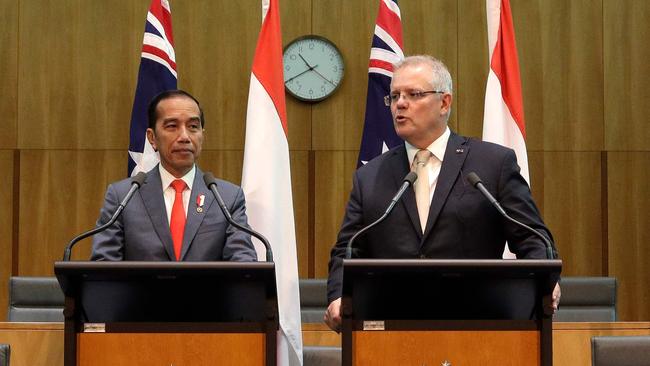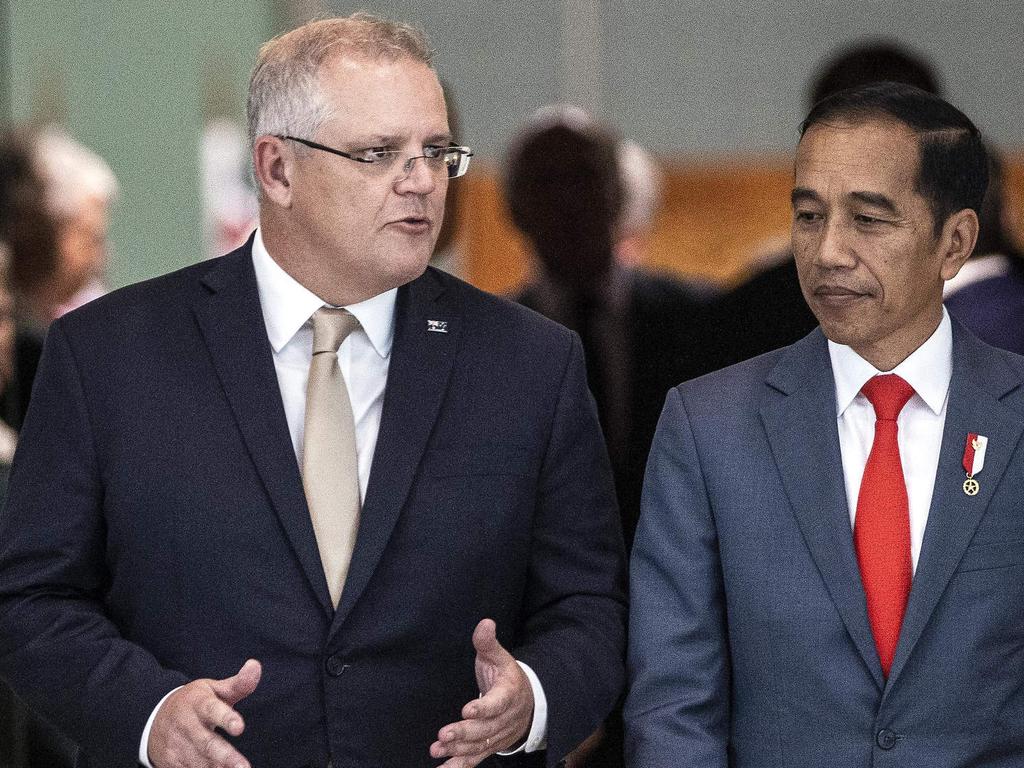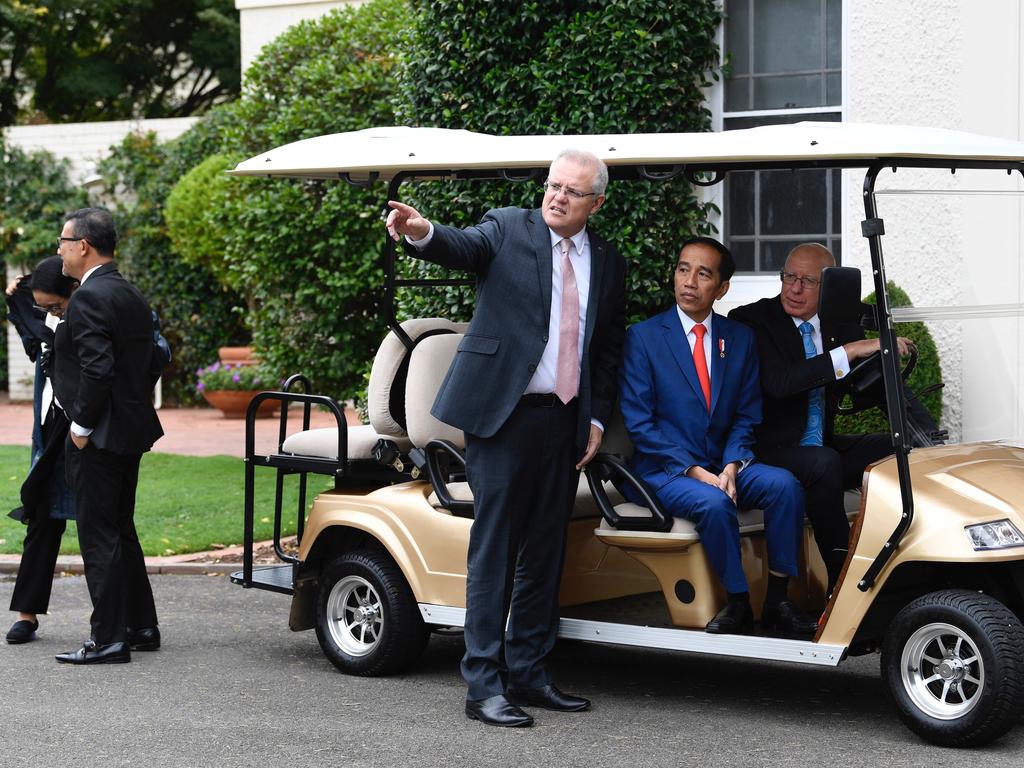
The Indonesian President is not noted as a big-speech speaker. He generally eschews big-picture strategic issues. But Mr Joko’s speech to the joint sitting of parliament in Canberra was full of historic messages that offer a chance, as he puts it, for “a new era” in Australia-Indonesia relations.
Hailing Australia as Indonesia’s closest friend is a big message to Australians if they are listening. Sadly, it’s not likely they are, beyond Canberra. It recalls the very best days of fraternal closeness that existed for a time between Susilo Bambang Yudhoyono and John Howard, and between Paul Keating and Suharto.
It’s also a message for his fellow Indonesians. This is a President, cautious in the use of his political capital, spending some of it on the Australian relationship. If there should be another bilateral spat any time soon, Mr Joko could be criticised at home for such words.
They are also a message to Indonesia’s international interlocutors — to China and the US pulling the island nation in opposite directions, and the other nine members of the Association of Southeast Asian Nations: Indonesia has a close collaborator and comprehensive strategic partner beyond any of them. Indonesia and Australia standing together, in any context, are stronger than either of them standing apart.
The President’s speech also contained an eloquent defence of democracy. At a time when democracy has been somewhat in retreat in Southeast Asia, and under acute pressure in other parts of the world, when authoritarianism seems to be on a roll, the persistent triumph of democracy in Indonesia, the fourth-biggest nation in the world, is a powerful counter-narrative that is heard too little.
Democracy in Indonesia faces its challenges and Mr Joko has had to make his compromises, but he is unequivocally on its side. This is a powerful rhetorical advocacy of a genuine reality.
A little less convincing is his defence of free trade. Lots of leaders talk a good game on free trade without implementing much. And that is pretty much the case in Indonesia. The big exception is the Indonesia-Australia Comprehensive Economic Partnership Agreement, which the Indonesian parliament ratified last week. This is also a big historic achievement.
The President cited forecasts that by 2050 Indonesia would be the world’s fourth-largest economy. Scott Morrison cites Indonesia as a central part of Australia’s plans to diversify away from its excessive reliance on China. Nonetheless, these are forecasts, not yet realities.
Certainly, doing business in Indonesia is challenging and it needs the support of the Australian government in many ways. However, in this trade agreement, Indonesia really is liberalising access for Australian exporters across several important sectors. There is genuine substance here. It’s up to both countries to make it grow. Similarly, Monash University becoming the first foreign university to establish a campus in Indonesia is a qualitative change, part of the push for more people-to-people contacts and for Australian universities to diversify away from institutional dependence on China.
At the same time, it’s pretty unlikely that Canberra will grant visa-free, or visa-on-arrival, entry to Indonesians, but we can make the process a good deal easier.
The President’s speech also contained some reflections of his idiosyncratic personality. He compared Australia and Indonesia to Avengers Assemble and climate change to Avengers End Game, while also referencing Aboriginal singer Jimmy Little.
Popular culture, popular technology and popular Australia: what a promising Indonesian combination.







In declaring Australia to be “Indonesia’s closest friend”, Joko Widodo made a historic speech to the Australian parliament.